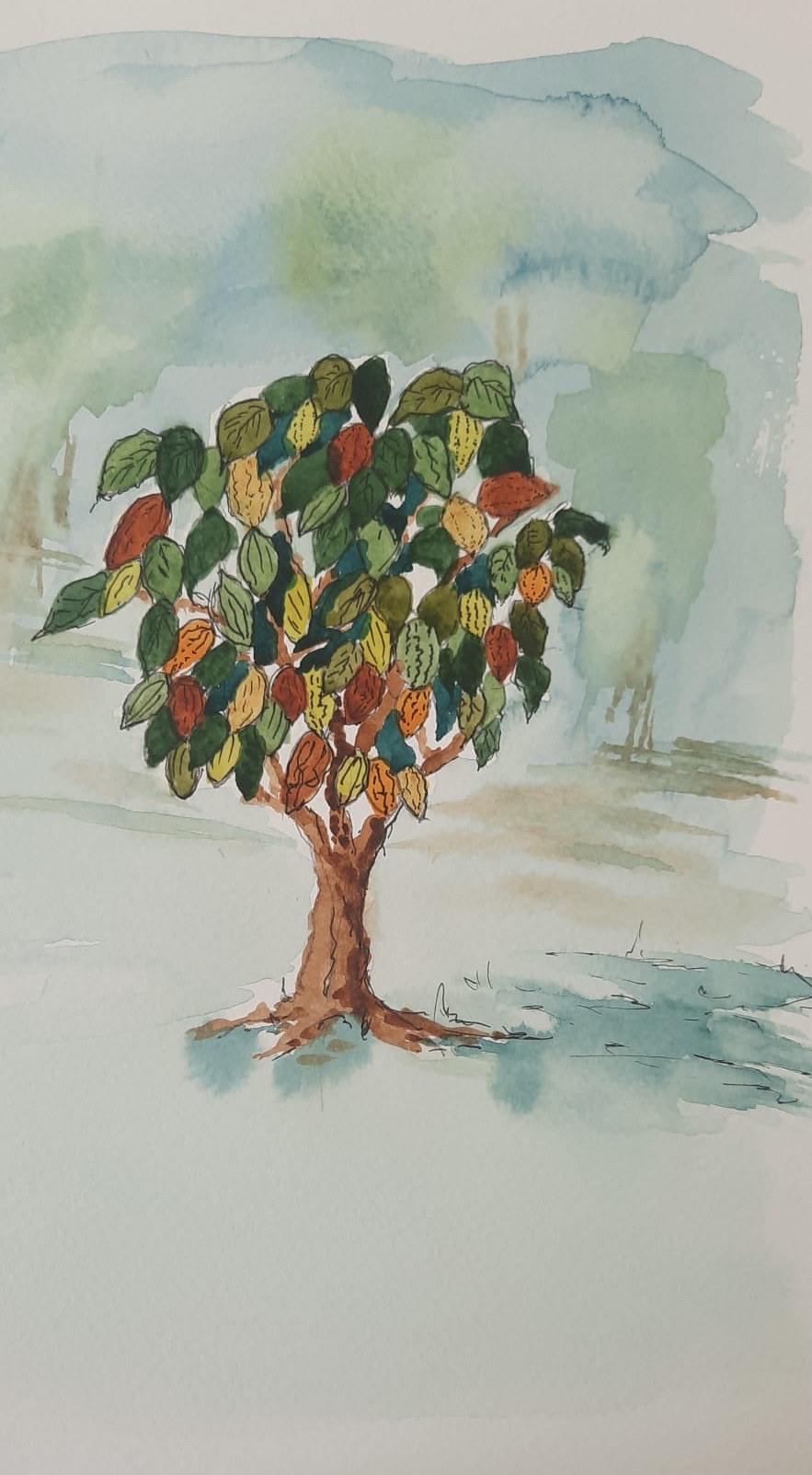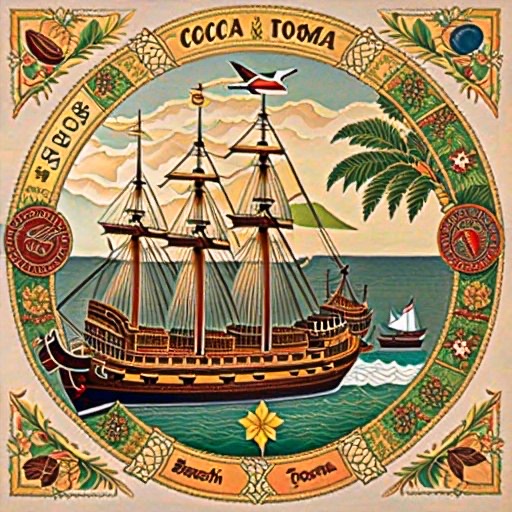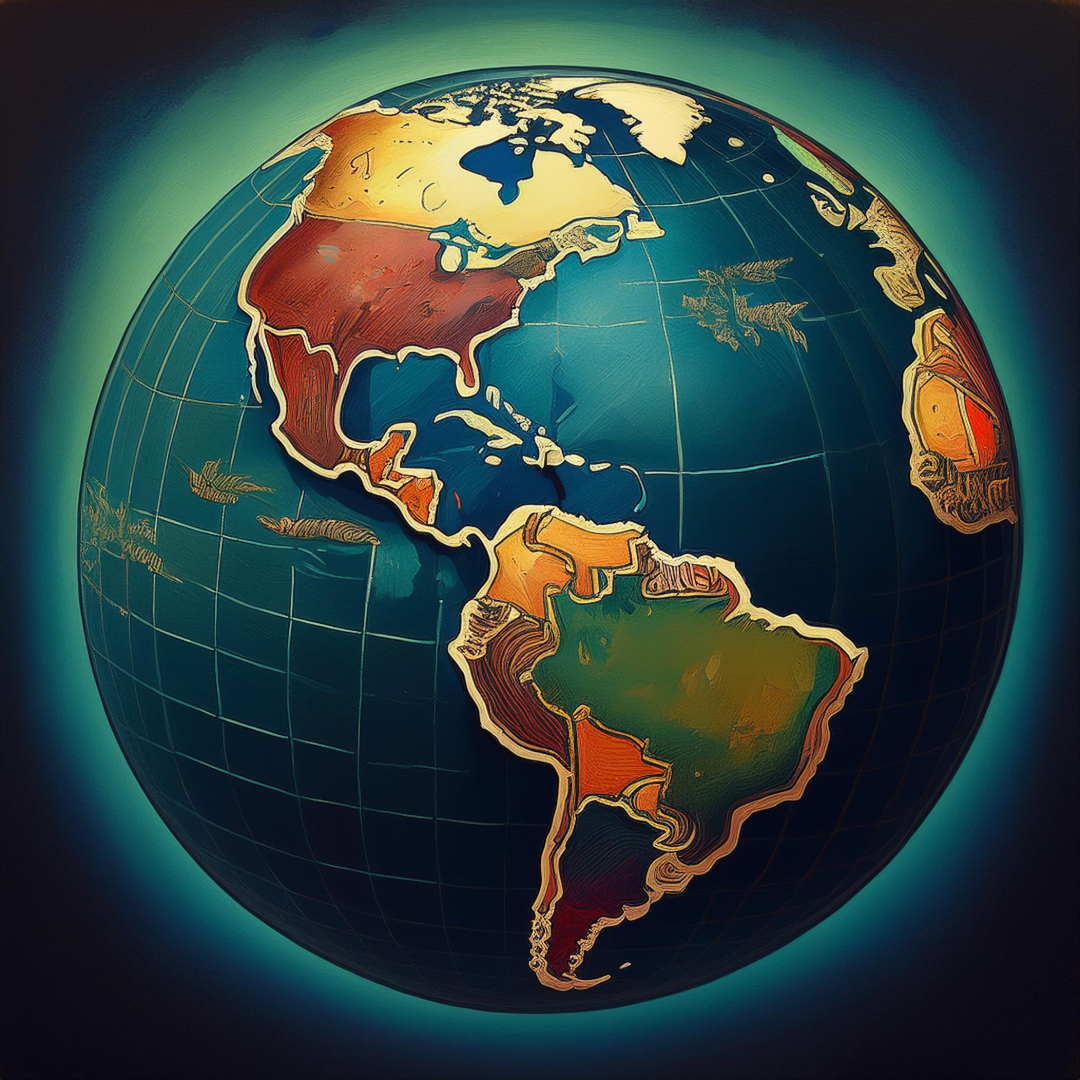The Portuguese, ever the pioneers of maritime exploration, were the first to see the potential in cocoa.
On the twin islands of São Tomé and Príncipe, nestled in the Gulf of Guinea, they saw a golden opportunity.
The climate was perfect, and the soil was rich. Here, they planted the first cocoa trees, and soon, the islands developed into the world's most productive cocoa plantations.
Earning them the name The Chocolate Island.
Under the sweltering African sun, the plantations thrived. Portuguese overseers watched with satisfaction as cocoa pods swelled and ripened, their rich, chocolatey aroma filling the air.
The islands became synonymous with cocoa, a beacon of agricultural success in the burgeoning colonial empires.
Meanwhile, to the east lay the island of Fernando Po, under Spanish control. The Spanish were well aware of the success their Portuguese neighbours were enjoying with cocoa.
Governor Don Manuel Romero de Aranda, stationed in Santa Isabel, the island’s capital, was a man of vision and ambition.
He saw the potential for Fernando Po to rival São Tomé and Príncipe.
Romero de Aranda, in his grand residence overlooking the shimmering Atlantic, made a decisive plan.
He reached out to experienced planters from São Tomé, inviting them to bring their expertise to Fernando Po.

Among them was Miguel Ferreira, a seasoned plantation manager known for his green thumb and knack for coaxing the best out of the land.
But it wasn’t just the Europeans who held the key to cocoa's success. Liberated Africans, freed from the chains of slavery, also played a pivotal role.
Many of these freedmen had worked on cocoa plantations in the Americas and brought with them invaluable knowledge and skills. Among them was Kofi, a man who had earned his freedom and who now sought a new beginning in the lands of his ancestors.
Kofi, along with others like him, accepted the Spanish offer to work on Fernando Po. With hands calloused by years of labour and hearts full of hope, they boarded ships bound for the island, their minds filled with dreams of prosperity.
The Blossoming of Fernando Po
Upon arrival, the settlers and freedmen set to work. They cleared the dense jungle, planted the cocoa seeds, and tended to the young plants.
Day by day, the cocoa trees grew taller and stronger, the broad forest became creating a canopy that shaded the rich undergrowth.
Miguel Ferreira and Kofi formed an unlikely partnership, united by a shared passion for the land and the crop they cultivated. Under their guidance, the cocoa plantations flourished.
The island's soil, kissed by the tropical rains and bathed in the equatorial sun, proved to be perfect for cocoa.
The first harvest was a moment of triumph.
The cocoa pods, heavy with beans, were plucked from the trees.
The air was filled with celebration as the workers cracked open the pods, revealing the precious beans within. It was a moment of promise and hope, a symbol of what hard work and cooperation could achieve.
Fernando Po soon became known for its high-quality cocoa.
The beans were shipped to Europe, where they were transformed into fine chocolate, delighting the palates of kings and commoners alike. The island had found its place in the global cocoa market, and its success was a testament to the vision of its settlers and the hard work of its people.
As the years passed, the cocoa plantations of Fernando Po continued to thrive. The island became a melting pot of cultures and traditions, all united by the common goal of cultivating the beloved cocoa bean.
The legacy of those early pioneers lived on, their story etched into the very soil of the island.
Miguel Ferreira and Kofi, now older and wiser, would often walk through the plantations, reminiscing about the journey they had undertaken. They knew that they had been part of something extraordinary, a story of perseverance, collaboration, and the sweet taste of success.
And so, the tale of how cocoa reached Fernando Po is not just a story of agricultural expansion but a rich tapestry woven from the threads of ambition, expertise, and the indomitable human spirit.


